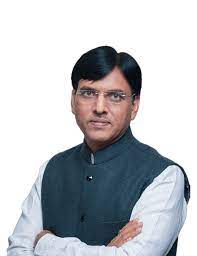Union Health Minister Mansukh Mandaviya has advised severe COVID-19 patients to avoid overexertion for a year or two to prevent heart attacks and cardiac arrests. The National Institutes of Health found that COVID-19 may damage blood vessel linings and immunological cells, increasing heart attack and stroke risk.
Days after numerous people collapsed at Gujarat’s Navratri Garba activities, Union Health Minister Mansukh Mandaviya advised those who have severe COVID-19 to avoid overexertion for a year or two to avoid heart attacks and cardiac arrests.
“ICMR did a thorough study. According to this study, severe COVID-19 patients should not overexert. “To avoid heart attacks, they should avoid hard workouts, running, and strenuous exercises for a year or two,” Mandaviya told reporters. Gujarat has reported 10 heart-related deaths in a day during Navratri ‘garba’ celebrations.
Besides playing Garba or dancing, these fatalities raised concerns regarding COVID-19 and heart disease. The National Institutes of Health found that COVID-19 could harm blood vessel inner linings and macrophages.
This study underscores the necessity to understand COVID and cardiac attacks. SARS-CoV-2 may raise heart attack and stroke risk by infecting arterial wall tissue, particularly macrophages, according to NIH findings. This causes atherosclerotic plaque inflammation, which can cause heart attack or stroke.
These findings suggest a link between heart disease and Long COVID symptoms. According to NIH researcher Dr. Chiara Giannarelli, the immune cells most implicated in atherosclerosis may serve as a reservoir for the virus, allowing it to stay in the body.
Dr. Michelle Olive of the National Heart, Lung, and Blood Institute repeated this: “Since the pandemic began, we have known that COVID-19 patients have a higher risk of cardiovascular disease or stroke one year after infection. have think have found one reason.”
In addition, an AIIMS investigation found a heart problem in India. Only 10% of cardiac emergency patients reach a hospital within an hour. Many delayed going to the hospital while attempting to figure out what was wrong, and 20-30% had trouble getting transportation or affording medical care.
Conclusion
The rise in heart attacks and cardiac arrests, especially in severe COVID-19 patients, highlights the need to better understand the relationship. Studies reveal SARS-CoV-2 infection can promote inflammation and plaque buildup, raising heart attack and stroke risk. Due to delays in symptom recognition, transportation issues, and budgetary constraints, few cardiac crises in India reach the hospital on time. COVID-19 patients must be aware of their increased risk of heart disease and take actions to lower it, such as avoiding vigorous activity and eating well. Also, get medical assistance promptly if suffering heart attack symptoms. Increase public knowledge of COVID-19 and heart problems, invest in emergency medical services and cardiac care facilities, especially in marginalized places, and improve emergency medical services.



